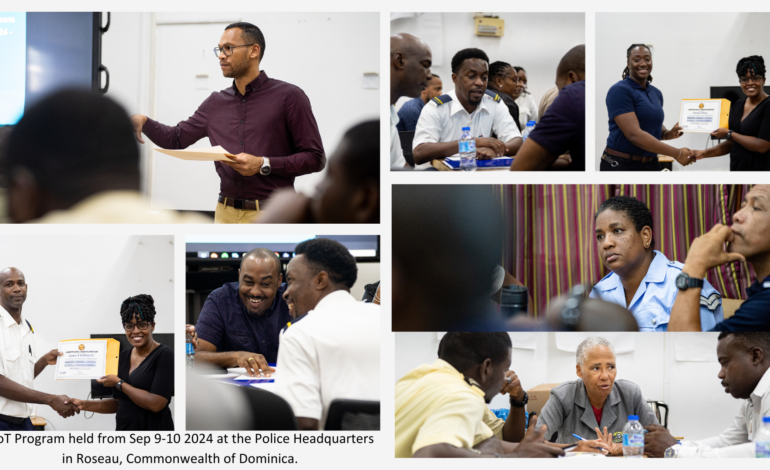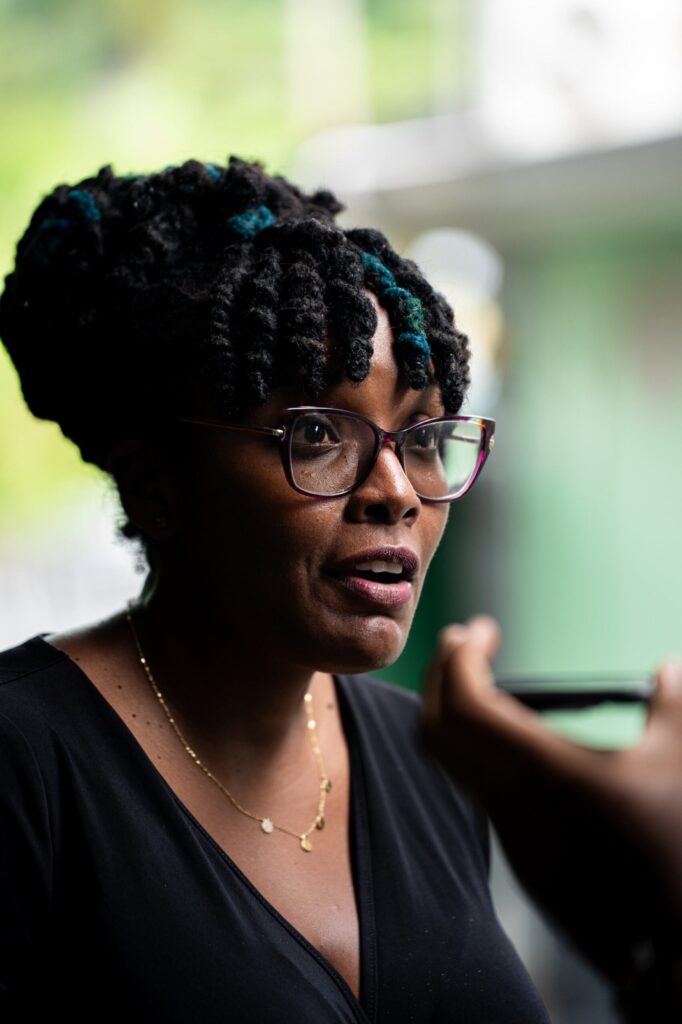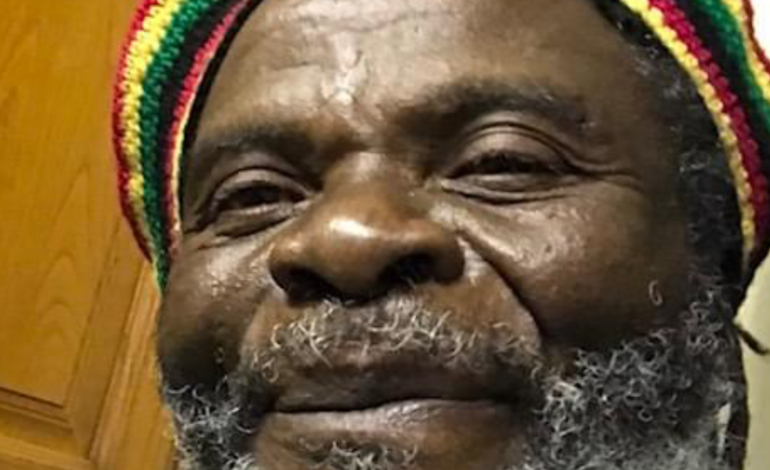
The International Organization for Migration (IOM) has successfully completed a two-day training program, held on September 9-10, 2024, aimed at equipping Dominica’s immigration and law enforcement officers with the necessary skills to detect and respond to human trafficking. The training, hosted in Roseau, is part of IOM’s broader efforts to strengthen border management and security while fostering safer communities in Dominica.
This initiative is particularly timely as Dominica’s position as a Caribbean entry point places the country at the forefront of managing increasing regional and international migration. The training program—specifically designed as part of IOM’s Training-of-Trainers (ToT) initiative—brought together key players such as representatives from the Dominica Air and Sea Ports Authority (DASPA) and the Dominica Police Force. Participants were trained to recognize indicators of trafficking and effectively manage these cases, helping to enhance Dominica’s border governance framework.
The training curriculum, carefully designed to address the growing threat of migrant smuggling, includes six detailed modules. The modules span core concepts of human trafficking, investigation techniques, and specific methods of smuggling by sea, air, and land. Importantly, the curriculum also highlights cooperation strategies among agencies to strengthen collective efforts to prevent and combat trafficking and smuggling. Facilitators provided interactive training tools, including flashcards and mini quizzes, to reinforce learning, and ensure participants can cascade this knowledge to other officials.
IOM Facilitator Tinestia Haynes highlighted the significance of the program, stating, “While the focus in Dominica often leans towards smuggling, this training emphasized the often-overlooked crime of trafficking. By the end of the session, we saw remarkable growth in the participants’ ability to identify trafficking scenarios.”

Participants echoed the value of the training. Corporal of Police Pertrina Dupigny remarked, “It was enlightening to learn that all three factors—act, means, and purpose—must be present to identify human trafficking. As law enforcement, this training equips us with tools we don’t use every day but are crucial in the fight against trafficking.”
Cozier Charles, Acting Director of Security at DASPA, noted the practical relevance of the training to his work at the ports, saying, “The knowledge gained will allow us to improve policies and strategies to detect traffickers and protect potential victims.”
Beyond immediate law enforcement, the impact of the training extends to the broader security of Dominica’s borders and communities. As trained participants share this expertise with other officials, it will strengthen their ability to intercept traffickers and disrupt smuggling operations, enhancing national security. The skills imparted will help officials address migration-related challenges with more precision and coordination, fostering safer ports of entry and increasing protection for vulnerable individuals.
By incorporating comprehensive tools for identifying trafficking and tackling migrant smuggling, the training is poised to positively impact Dominica’s capacity to manage its borders, protect its communities, and combat the global issue of human trafficking. The program’s ripple effect, as trained officials continue to educate others, ensures that these enhanced capabilities will permeate various levels of government, reinforcing the country’s commitment to safeguarding its people and its borders.





